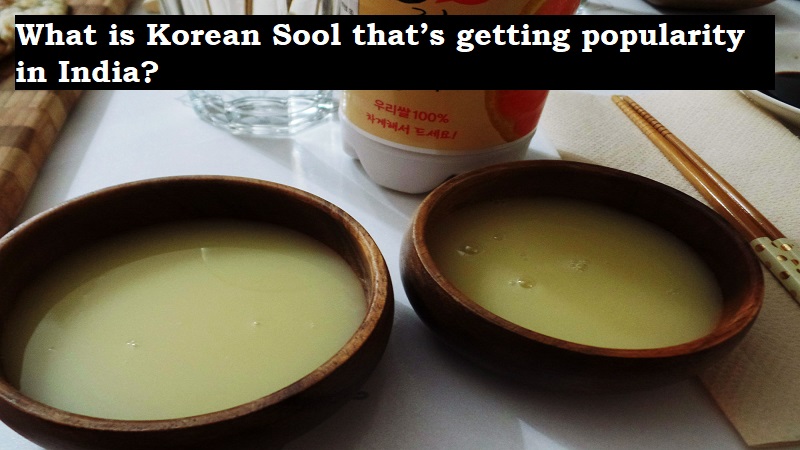
The extraordinary expansion of Korean culture throughout the world was dubbed ‘Hallyu,’ which literally translates to ‘Korean Wave.’ The entire nation has been impacted by Korean culture, which includes K-Drama, K-Pop, and K-Food. After all of these, it’s time for K-Sool, which is just Korean booze that also contains wines.
People were recently made aware of this booze thanks to a promotion event for traditional Korean liquor held at the Korean Embassy in New Delhi.
Sool, what does that mean?
Alcoholic beverages produced in Korea are generally referred to as sool in Korean. This term defines all types of Korean alcoholic beverages and it doesn’t matter whether the drink is cloudy and only roughly filtered (makgeolli), clear (yakju), or distilled (soju).
How is Korean alcohol made?
Rice, water, and a fermentation starter are reportedly the only three materials needed to make Korean alcohol. K-Sool is produced in a way that is distinctive in and of itself. As they are simple to understand, most people refer to Sool as beer or rice wine. However, the entire rice fermentation process is carried out in a way that does not taste like either wine or beer.
Which fermentation starter is used to make K-Sool?
The fermentation starter, known in Korea as ‘Nuruk,’ which is used to ferment rice and aid in the production of alcohol, comprises filamentous fungi and yeasts that enhance the flavour and taste of sool. Some Korean manufacturers also use ‘Ipguk’, which is a type of koji.
While Nuruk can be made from barley, wheat or rice; ipguk on the other hand is made with rice or wheat only which has been inoculated with a single strain of fungus typically Aspergillus oryzae or Rhizopus oryzae.
Types of K-Sool
The traditional K-Sool can be broken down into other types, such as ‘Fruit Wines,’ which are fermented local fruits, ‘Distilled Liquor,’ which includes spirits like Soju, and ‘Yakju’ or ‘Cheongju,’ which is a golden clear alcohol similar to wine. All of these alcoholic beverages have varying ABVs, which affects how they taste as well. While Yakju has an ABV of roughly 12 to 15 percent, Takju has an ABV of about 8 to 12 percent. Contrarily, fruit wines may have an ABV of 20–25 percent and soju may have an ABV of up to 50 percent.

Post Your Comments